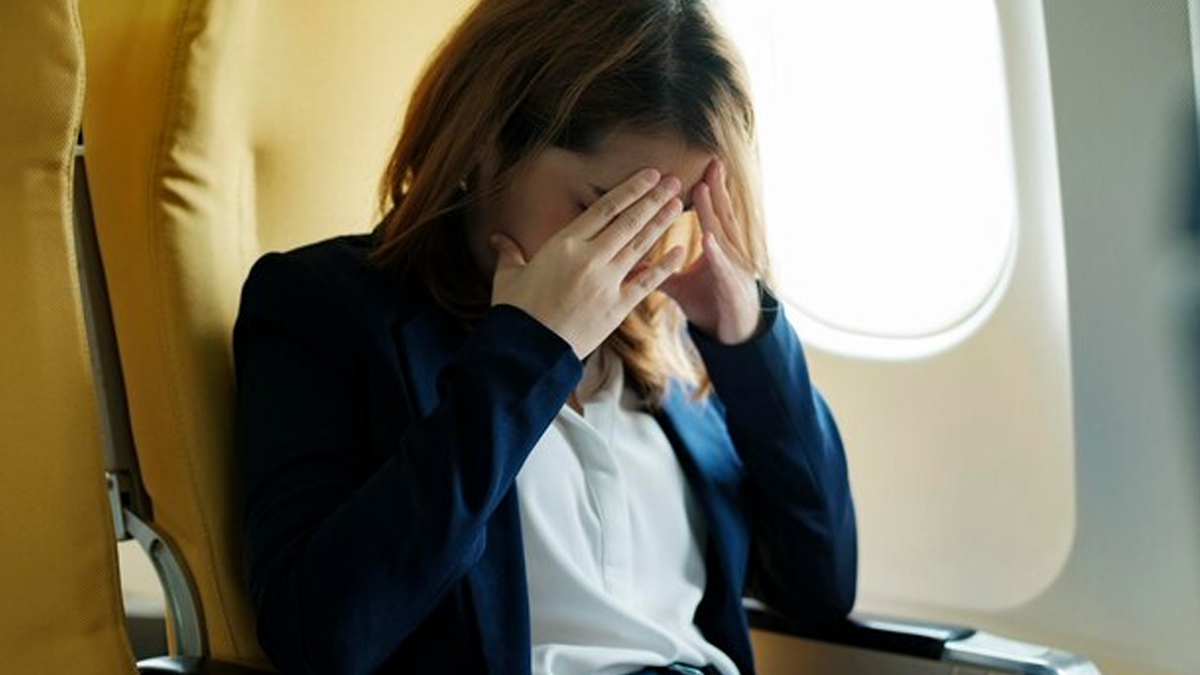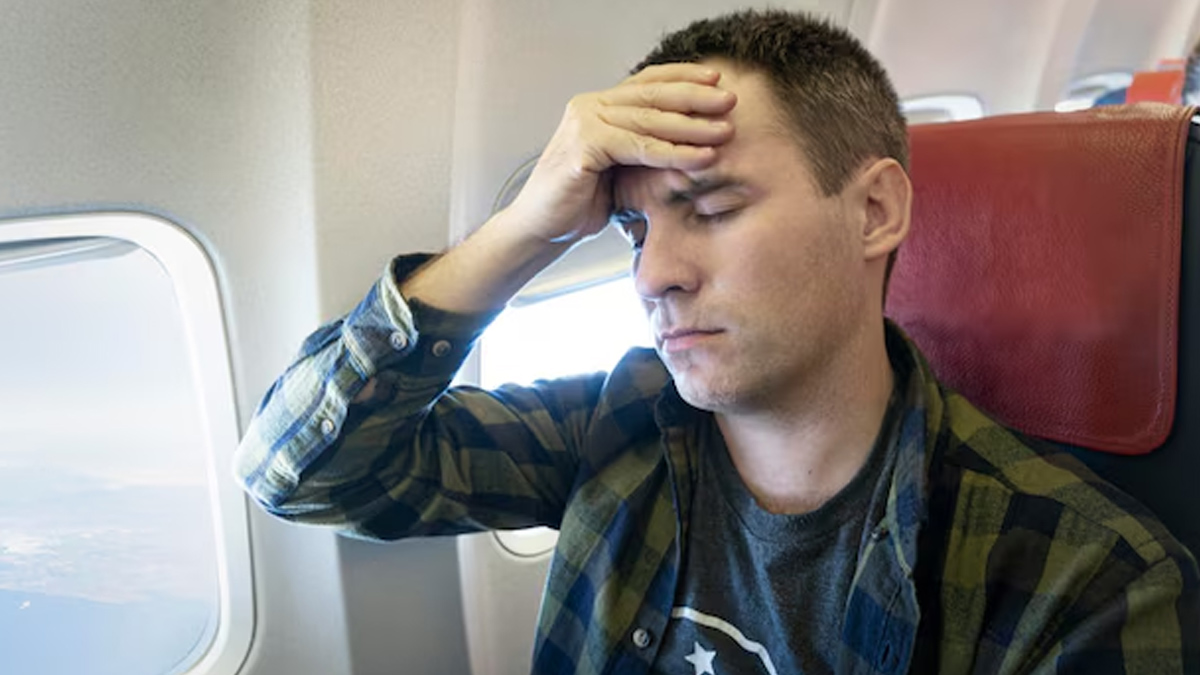
Did you know flying with high blood pressure may pose some challenges? One possible reason is the decrease in oxygen levels at high altitudes, straining the heart and raising blood pressure. Even though most people with well-controlled hypertension can fly safely, it is important to be aware of the potential risks and take necessary precautions. We spoke to Vidhi Chawla, Dietician, Founder, Fisico Diet and Aesthetic Clinic, Gurugram, who explained the impact, risks, and tips for managing high blood pressure when flying.
Table of Content:-
Potential Impact Of Flying or Travelling With High Blood Pressure
High blood pressure or hypertension is a health condition in which the force of blood pressure pushing against the walls of the arteries is consistently high. According to the National Heart, Lung, and Blood Institute (NHLBI), it was found that one out of every three adults with hypertension in the US is unaware that they have the condition.
Altitude Changes

- Low Oxygen Levels: The air has less oxygen at higher altitudes. The body compensates for this by increasing the heart rate and constricting blood vessels to deliver more oxygen to tissues. As a result, there is a temporary increase in the blood pressure levels.
- Fluid Shifts: A change in air pressure can alter the body's fluid distribution, causing temporary fluid shifts, which may elevate blood pressure by a small degree.
Dehydration
- Dry Cabin Air: The air inside the aeroplane tends to be extremely dry, contributing to dehydration.
- Reduced fluid intake: Passengers usually drink less fluid during flights since most aeroplane toilets are accessible and become inconvenient.
Dehydration increases blood volume and makes it harder for a heart to pump blood well, significantly affecting blood pressure.
Also Read: High Blood Pressure In Your 30s? How Everyday Habits Could Be The Cause
Other Factors

- Stress and Anxiety: Travel stress, airport security, and potential flight delays can also contribute to elevated blood pressure.
- Medication Considerations: Some medications for high blood pressure may be affected by altitude or air pressure changes. According to the Centers for Disease Control and Prevention (CDC), it is advised that people should take their medications during travels as per their doctor's instructions.
A 2021 study indicates that individuals with high blood pressure are generally able to travel to high altitudes, provided their condition is well-managed and they do not have other heart issues. If someone has uncontrolled hypertension or heart problems, they must consult their doctor for guidance on safe air travel.
Also Read: Link Between Stress And Hypertension: Expert Shares Tips to Stress Less And Protect Your Heart
Tips for Safe Air Travel with High Blood Pressure
According to a 2021 study, even healthy men without heart disease had a 6% increase in blood pressure during commercial flights. Here are some safety tips shared by the expert that you should follow for safe air travel:

- You should share your travel plans with your doctor as they can help you assess your risk, adjust necessary medications, and provide specific travel advice.
- Don't forget to pack an adequate supply of your medication in your carry-on luggage to ensure you have access to it throughout the flight.
- Another crucial tip to remember is to stay hydrated throughout the flight to counteract dehydration. You should also refrain from drinking alcohol as it can cause dehydration, leading to increased blood pressure levels.
- Try to keep your body active by getting up and walking around the cabin periodically to improve circulation and prevent deep vein thrombosis (blood clots).
- To manage stress and anxiety during the flight, practise relaxation techniques like deep breathing.
- If possible, monitor your blood pressure before, during, and after the flight to track any significant changes.
[Disclaimer: This article contains information provided by an expert and is for informational purposes only. Hence, we advise you to consult your professional if you are dealing with any health issue to avoid complications.]
Also watch this video
Read Next
Sitting Too Much? Orthopaedic Shares How It Leads to Osteoporosis, Arthritis, and Joint Pain
How we keep this article up to date:
We work with experts and keep a close eye on the latest in health and wellness. Whenever there is a new research or helpful information, we update our articles with accurate and useful advice.
Current Version